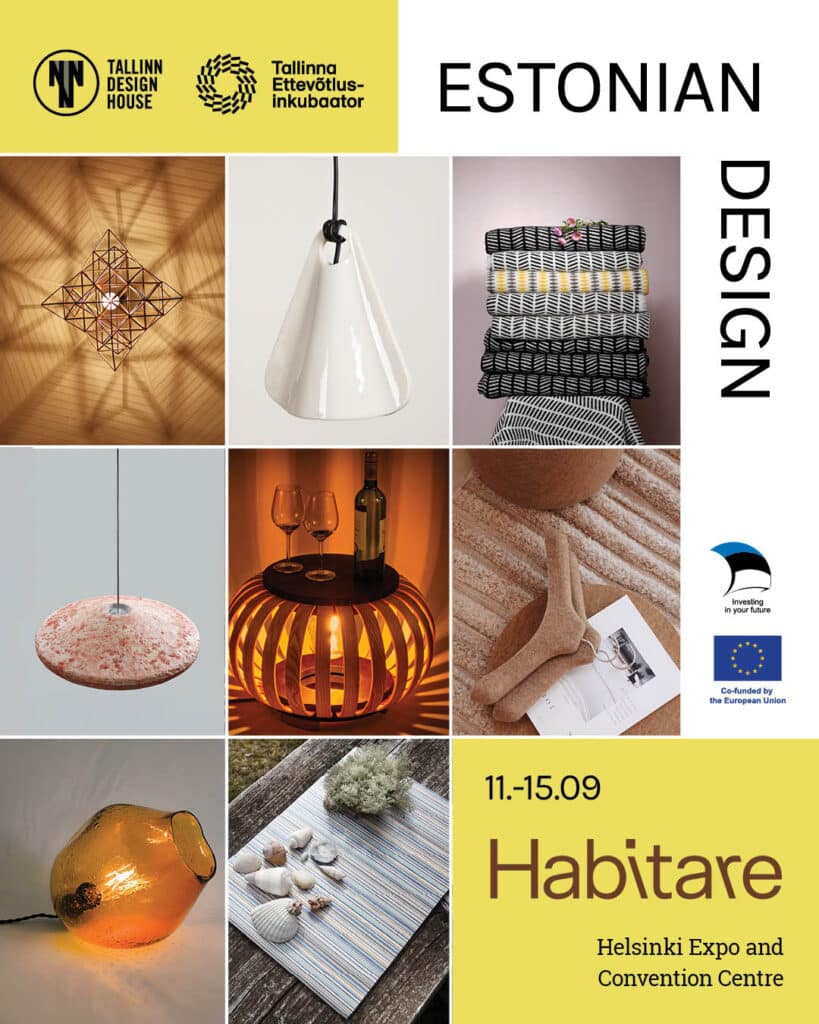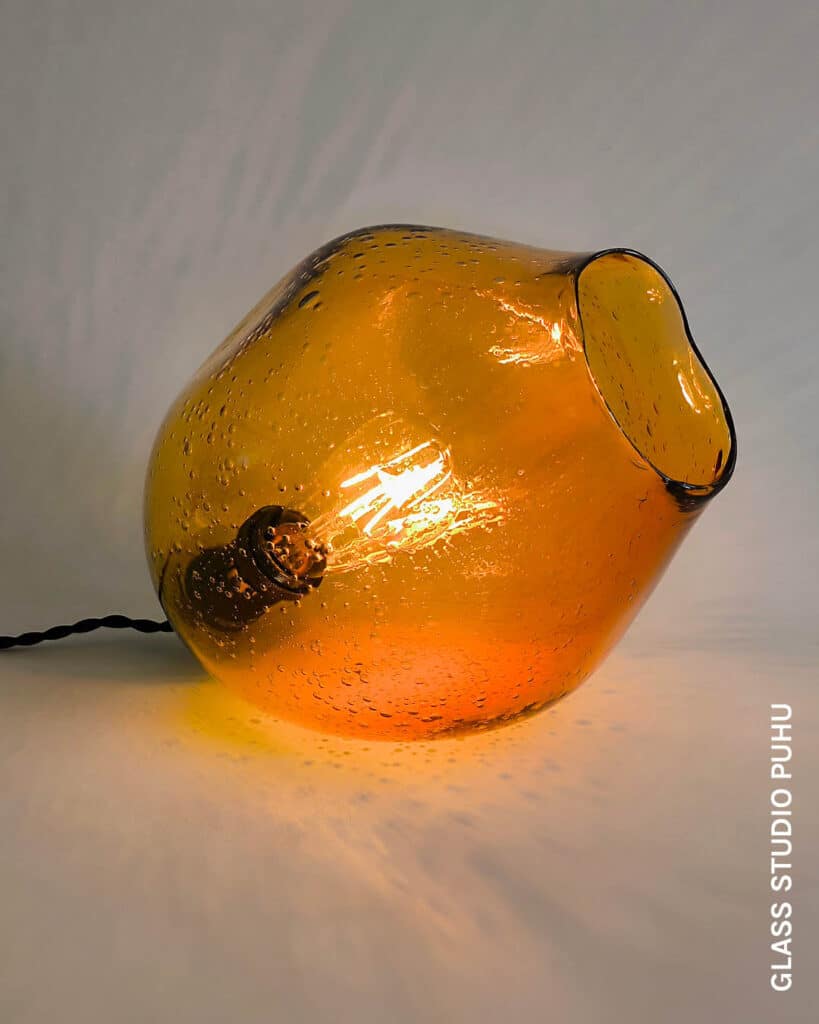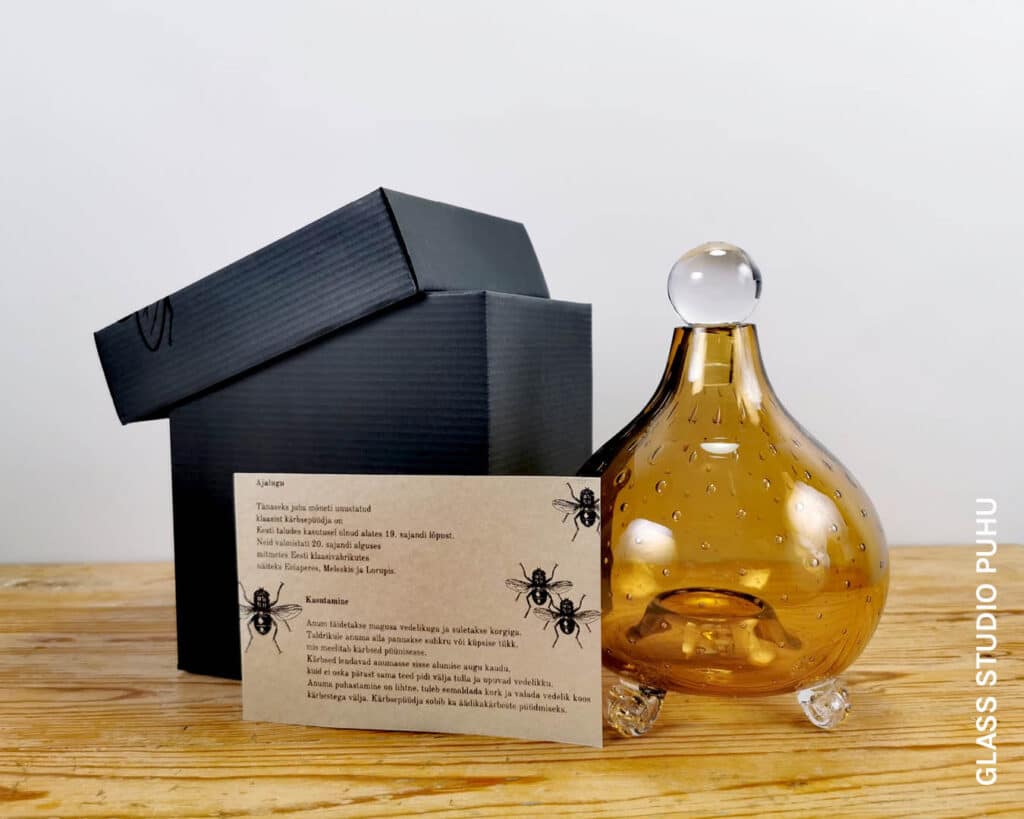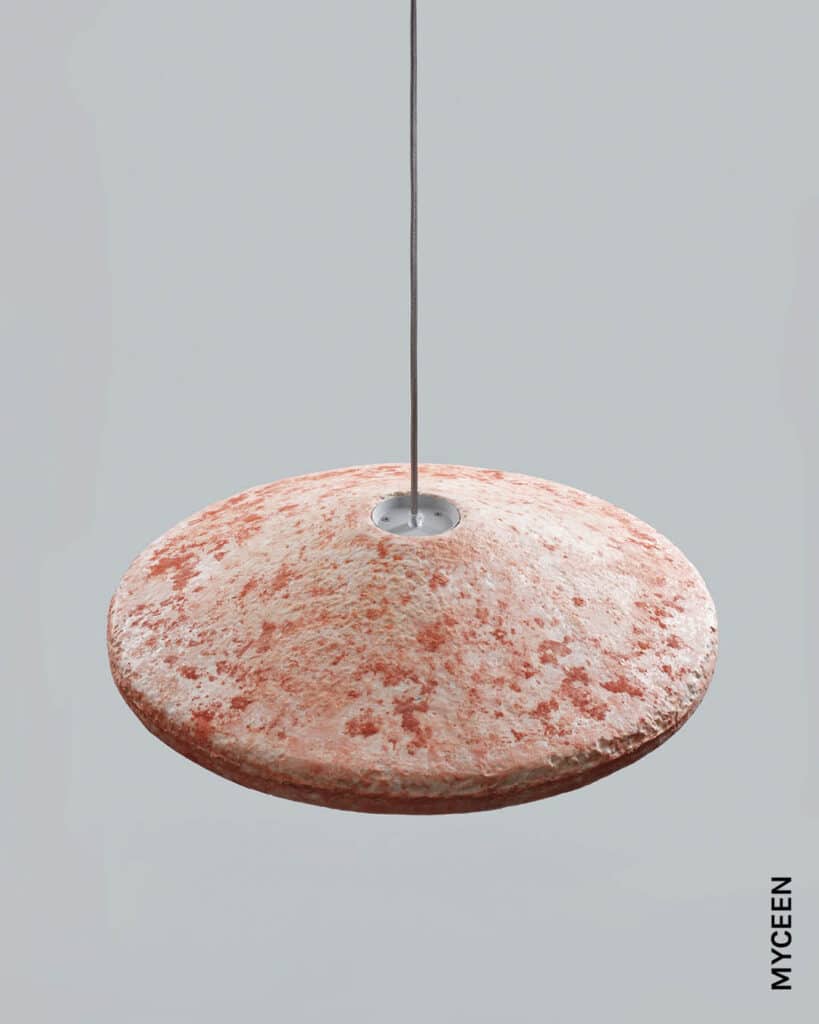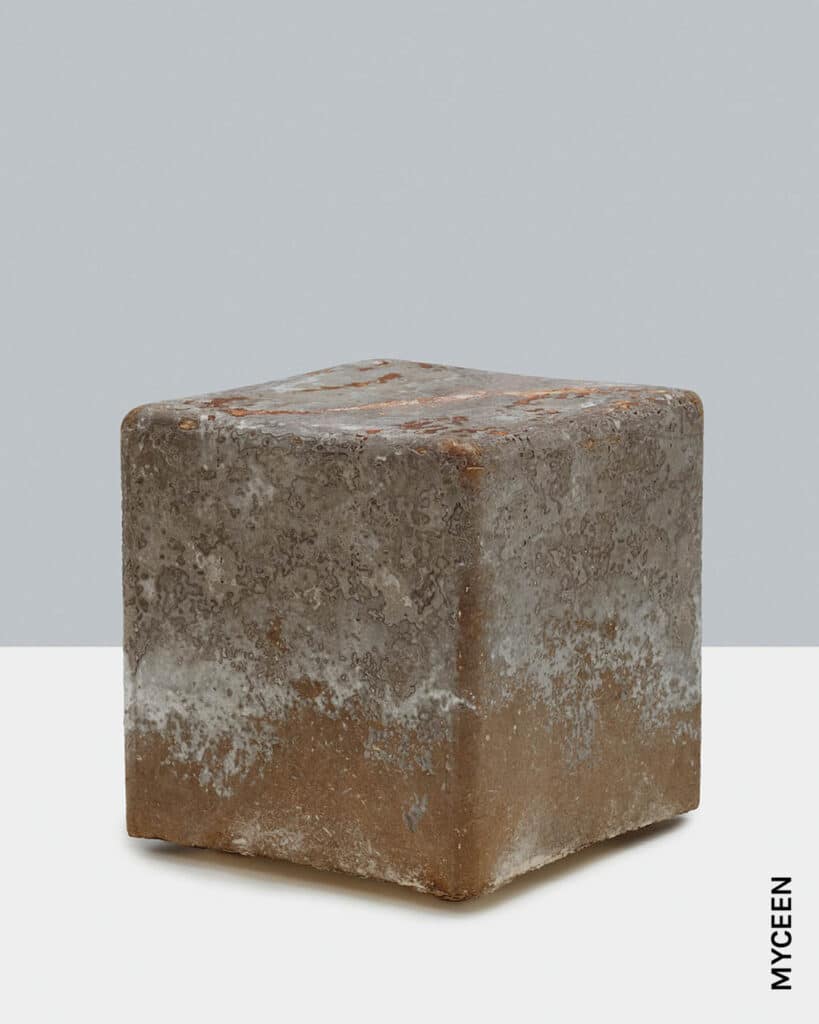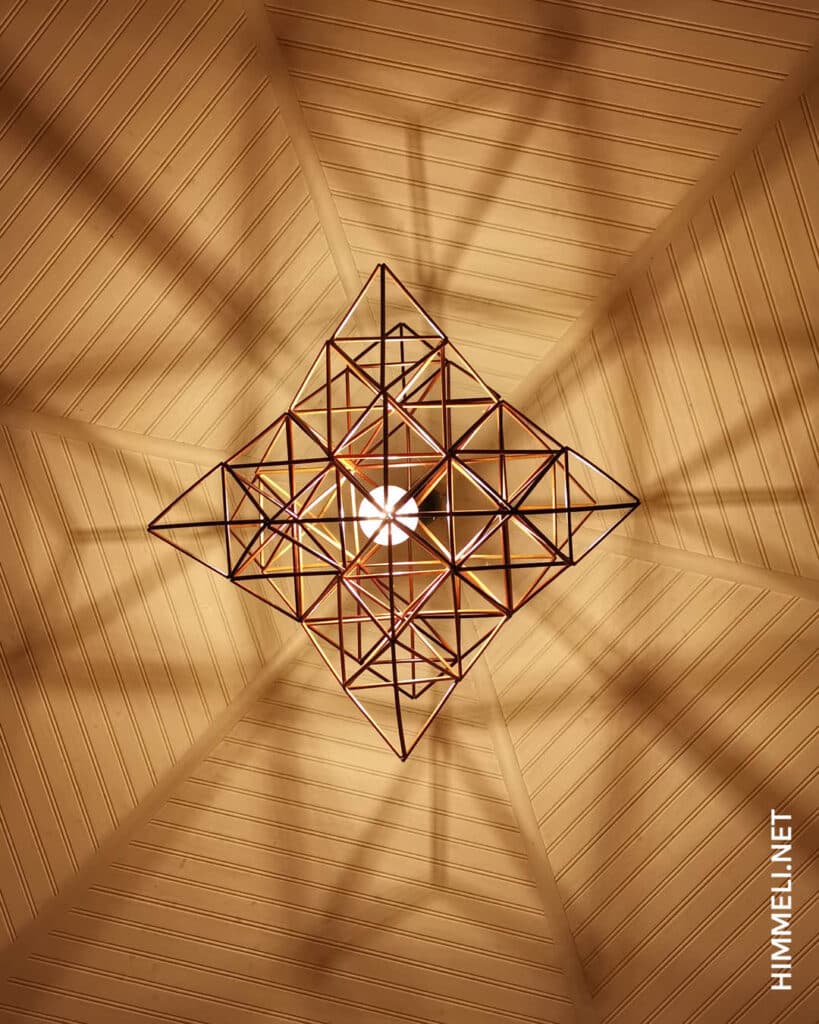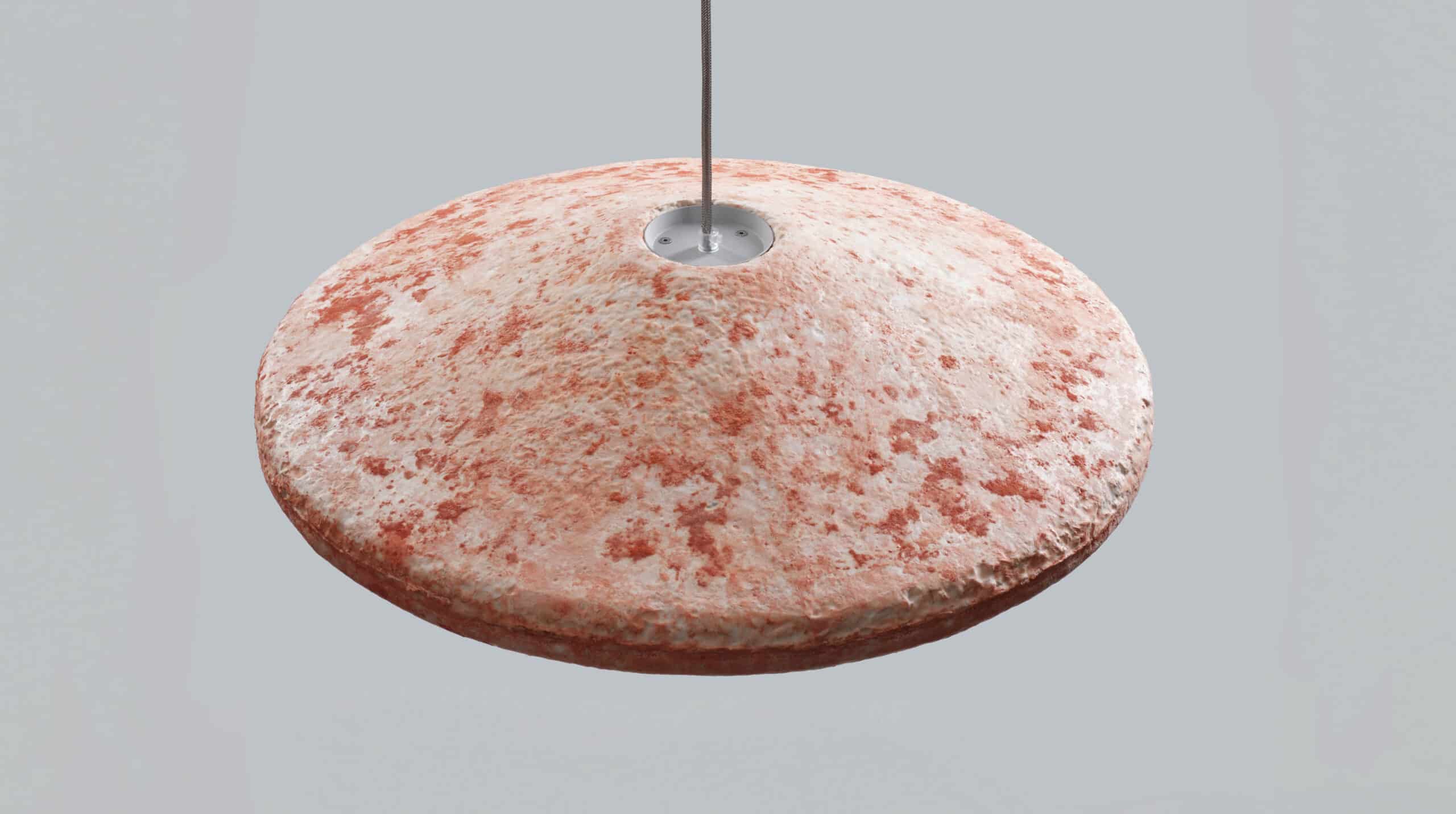
Estonian design shines at the largest Nordic interior design fair, Habitare
30.08.2024
Tallinn Design House and Tallinn Business Incubator are bringing Estonian design to Habitare, the leading Nordic furniture, design, and interior fair, taking place from September 11-15, 2024, at the Helsinki Expo and Convention Centre.
In the Habitare section The Block, Estonian designers Eili Soon (Glass Studio Puhu), Siim Karro (Myceen), and Urmas Veersalu (Himmeli.net) will be represented with their exhibits.
Glass Studio PUHU offers professionally executed Estonian glass design products and glassblowing services to both private and corporate clients. They offer a wide range of handblown modern home decoration elements: vases, jugs, drinking glasses, bowls, pendant lights and chandeliers. They offer a variety of glass sculptural objects, awards and corporate gifts for business clients. In addition, it is possible to create special solutions in collaboration with their designers, according to the customer’s wishes.
Myceen is developing sustainable, carbon-storing building materials made from mushroom mycelium and by-products of the wood and paper industries. These innovative circular materials not only provide an eco-friendly alternative to plastics and composites but also play a critical role in drastically reducing the construction industry’s environmental footprint.
A heat-treated reed lamp or decoration by Himmeli.net consists of the simplest polyhedrons, which, when connected in different ways, create different look. Everyone is a designer. Himmelis from reed have been used to decorate homes in the Baltic Sea region since the Middle Ages. DECOREED 240 offers opportunities to be creative and to prepare them together. Heat-treated reeds in brown tones are suitable for both light and dark interiors and for both indoor and outdoor conditions.
At the Tallinn Design House exhibit, you can explore interior products made from wool, felt, plywood, and bent wood, as well as fused glass lighting fixtures.
The Kelpman Textile brand is known for its lively scarves and home textiles, which are inspired by the minimalism and rich craft tradition of the Estonian islands. Mare Kelpman, a designer committed to sustainability, skillfully weaves textiles using old and modern machines, focusing primarily on the lasting properties of natural materials. Textiles with the Kelpman Textile label are 100% natural, produced in Finland, Estonia and Latvia from materials made in Europe. Important keywords for home textiles are quality and durability, limited editions and a pleasant home feeling.
WOH is a design studio founded in Tallinn by the visionary Margot Vaaderpass. Since 2013, WOH has been crafting home accessories that strike a balance between the essence of Nordic design and conscious manufacturing at its core. WOH believes in the beauty of simplicity, seeking to enhance daily living with functional pieces that exude a pure Nordic aesthetic. Their commitment to conscious living is reflected in every aspect of their work, from design to production.
Triibuvineer is a playful material – combining nordic birch plywood with colors creating an exciting and warm new feel. They stand for a good design and quality craftmanship to ensure a long life cycle to our products. They create design products, interior elements and lifestyle accessories to make everyday lives magically colorful.
Eloval is an Estonian lighting company that designs and produces lighting in small series. Their lights have a simple design language, but they always have details that make them stand out from the rest. They do not limit themselves to making lights from a certain material or a certain style but want to test the possibilities of different materials in creating and directing light. As a small manufacturer, they are flexible, consider the customer’s wishes and can create bespoke color combinations.
uBent is mixing ancient steam bent wood technique and contemporary design solutions. They proceed giving shape to wood by bending from minimalistic aesthetics. Their key factor is curiosity and best technical solutions. Thet are using sustainability sourced solid wood. Why uBent? U is the most common shape of the bending form and bent is derived from English. The handcrafted product is made of sturdy wood (for example oak, ash, elm and fruit trees). The result is a product that is best described as airy and flowing, yet with strong lines and great practicality. The design is inspired by the forests and nature of Estonia, where straight lines are absent, just as in uBent products. As time went on, we also discovered that “u bent” means “you are” in dutch.
Come and be part of the largest design event in the Nordics!
For more details, visit the Habitare website: https://habitare.messukeskus.com/en/
